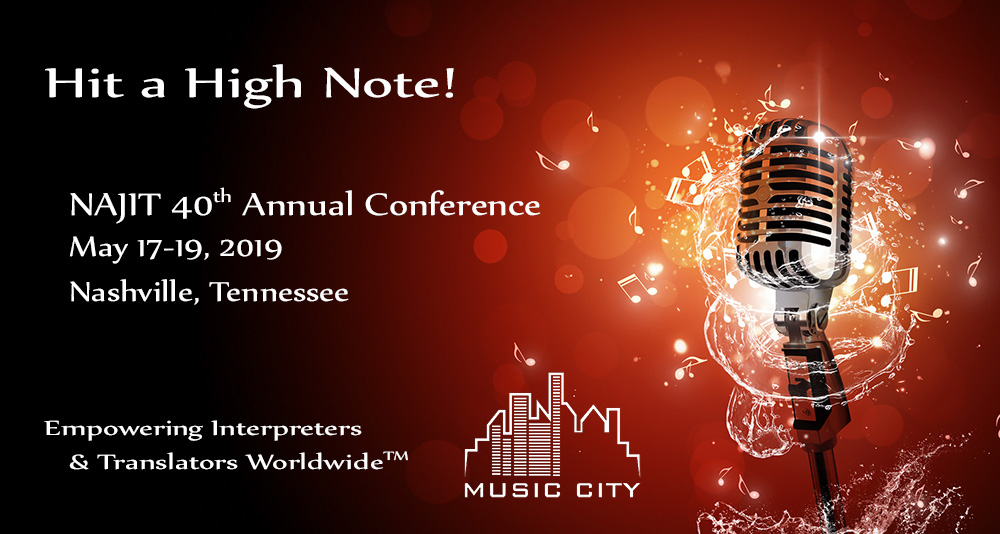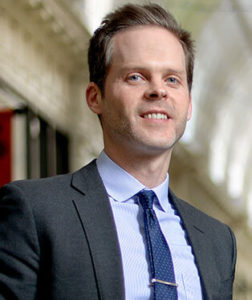
01 Feb Accessibility to Justice: An Interview with Certified Judicial Interpreter Roxane King
This article has been edited for length, with the author’s permission, and it was first published in the Cleveland Metropolitan Bar Journal, January 2018.
Accessibility to all is one of the truly inspiring hallmarks of 21st century American society. Whether it’s the court reporters working tirelessly to caption the entirety of video content on the internet for the benefit of the hearing impaired, or the Certified Judicial Interpreters who break down language barriers to ensure due process in our justice system, countless legal industry professionals are out there making great strides to see to it that we become a more accessible nation for disabled and non-English speaking persons.
As a veteran court reporter, I have witnessed my share of depositions involving an interpreter, ranging anywhere from perfection to the comically outrageous, from having my audio subpoenaed to having the entire deposition thrown out completely. I recently had the absolute pleasure of interviewing Roxane King, one of Cleveland’s most respected and recognizable Supreme Court Certified Judicial Interpreters.
THE ROXANE KING INTERVIEW
TODD PERSSON: Roxane, you are a Supreme Court Certified Interpreter?
ROXANE KING: Yes. For the Ohio Supreme Court and the Superior Court of California.
TP: What is the role of a Supreme Court Certified Interpreter?
RK: The role and duty of the interpreter is to act as a medium between the court and the non-English speaking person, allowing the defendant or plaintiff to be linguistically and cognitively present in a legal proceeding. The interpreter is required to transfer all meaning he or she hears from the source language into the target language without editing, summarizing, neither adding nor omitting content or meaning.
TP: What is the training and education involved with becoming a Supreme Court Certified Interpreter?
RK: Certified interpreters undergo extensive training and education. We are taught a breadth of legal terminology and various techniques to be mastered, such as the simultaneous, consecutive and legal sight translation techniques. All three must be mastered and learned to precision to become certified.
TP: What is the testing involved?
RK: The Supreme Court of Ohio administers the certification testing, and there are two phases. The first phase is a written examination, which includes complex legal terminology, court language, and professional ethics and canons. The examinee must pass all areas of the test to move on to the next phase. After passing the written portion of the test, the examinee takes an oral exam, which consists of demonstrating oral proficiency in simultaneous and consecutive interpreting, as well as legal sight translation in both languages. A successful candidate must pass both the written and oral portions of the examination.
TP: So why the need for certification when it comes to interpreting in the legal arena?
RK: Well, first and foremost, it is the law. Certified Judicial Interpreters ensure the highest quality of interpretation. Professional judicial interpreting is provided to assist the Court in overcoming the linguistic barrier in the administration of justice for parties and/or individuals not fluent in English.
TP: One of the articles that you gave me to read before we met talked about how traditional bilinguals in the business setting will not necessarily interpret verbatim, but they will give a gist of what’s being said or summarize. But as a Certified Judicial Interpreter, you are trained in verbatim interpreting?
RK: Judicial interpreters are trained to deliver every element of meaning, including paralinguistic features such as audible gestures, pauses, nuances and word connotations without changing, adding, omitting, or summarizing. Therefore, we do not give a gist or summarize what is being said but rather deliver the complete element of meaning in the whole message exactly and precisely for the record. We interpret all testimony in the first person and are only permitted to speak in the third person when addressing the Court or counsel. When rendering witness testimony especially, we must maintain the same demeanor, register and language of the speaker.
TP: As court reporters, we work with many interpreters in depositions and oftentimes see that interpretations of witness testimony are challenged, and either our audio will be subpoenaed by counsel or the deposition will need to be taken again using a different interpreter. As a Certified Judicial Interpreter with all your training, education and testing by the Supreme Court of Ohio, is your interpretation less likely to be challenged in contentious cases?
RK: Absolutely. Certified interpreters are the stamp of approval of the Supreme Court of Ohio. Additionally, if counsel wants to challenge an interpretation made by someone other than a Certified Judicial Interpreter, we can provide expert testimony as to discrepancies, deficiencies or irregularities. In fact, Rule 604 of the Federal Rules of Evidence states, “The Interpreter shall be qualified as an expert.”
TP: In addition to being CEO and President of Certified Interpreters United, you are also a member of an organization here in Ohio?
RK: Yes, I am. The Community and Court Interpreters of Ohio.
TP: What does that organization do?
RK: It’s a professional organization of certified individuals and also non-certified individuals who are in the process of becoming certified. We gather as a support group within our profession. We attend workshops that give certified interpreters additional continuing education credits. My colleagues put workshops together as well where I have participated. I am also on the advocacy committee for NAJIT, the National Association of Judiciary Interpreters and Translators.
TP: Roxane, thank you so much for meeting today. There’s so much information here that I never even thought about and I hope will be helpful to litigators in Ohio who find themselves in need of a Supreme Court Certified Interpreter for a deposition or trial.
RK: Absolutely. Thank you, Todd.
Todd L. Persson has been serving the Cleveland legal community as a court reporter since 2002 and is a co-founder of Cleveland-based litigation support firm Cleveland Reporting Partners, LLC. He has spoken on the future of court reporting and technology on the Stenographers World Radio national podcast, is a contributing writer for the Florida Court Reporters Association, and has had blogs featured nationally by the National Court Reporters Association and the American Translators Association. He has been a member of CMBA (Cleveland Metropolitan Bar Association) since 2017. Picture courtesy of Cleveland Reporting Partners, LLC – (https://clereporting.com/partners/)
 Roxane J. King got her start in the Los Angeles court system in 2006 at all levels and has been a practicing certified judicial interpreter in Cleveland since 2013. She is the sole founder and president of Cleveland-based Certified Interpreters United, LLC, and is an active member of the National Association of Judicial Interpreters and Translators and the American Translators Association. She has been a member of CMBA (Cleveland Metropolitan Bar Association) since 2017. Picture courtesy of Certified Interpreters United (https://www.courtcertifiediu.com/roxane-king/)
Roxane J. King got her start in the Los Angeles court system in 2006 at all levels and has been a practicing certified judicial interpreter in Cleveland since 2013. She is the sole founder and president of Cleveland-based Certified Interpreters United, LLC, and is an active member of the National Association of Judicial Interpreters and Translators and the American Translators Association. She has been a member of CMBA (Cleveland Metropolitan Bar Association) since 2017. Picture courtesy of Certified Interpreters United (https://www.courtcertifiediu.com/roxane-king/)

Registration opening soon!


LOL, is anybody going to say anything? All right, I will. Just when you think you’re the Spiderman of legal interpretation this anvil just falls out of nowhere on yer tiny noggin making you realize you’re nothing but an old, desiccated dust mite between the pages of a bilingual dictionary. Or any other equally bitter and deranged analogy that might fit this scenario over a sweet TGIF appletini.
Great interview, Roxane! Thanks for being a volunteer with the ATA Interpreters Division on top of all the other stuff you do!
Guys, I am so sorry if this question comes out super-dumb, but I truly don’t know the answer and really want to know. I’m sort of embarrassed to even ask, to be honest. If I am a State of Florida Courts Certified Interpreter, am I automatically Florida Supreme Court Certified? I swear I don’t have a clue. That would be of great panache on the witness stand when they ask for qualifications., but I won’t dare go there unless I know for sure. This is what I love about being an interpreter. I learn something new about myself all the time! Heheheh. Ms. Palma, or Gio, or anybody… do you guys know?
Thanks
Alfredo, states do not follow a standard denomination for their different court levels. If I am not mistaken, the Superior Court of California is their trial court. In summary, it varies.
Hmmm, thx Gio. Now I wonder how far I can take it before I enter the realm of bs. Can you imagine? “Mr. interpreter, what are your qualifications?” – “I am certified by the run of the mill State Courts, the five District Courts of Appeals of Florida and the Second District Court of Appeals of Florida, and the… ahem, Supreme Court of Florida, of course! Yeeeah, that’s the ticket!” ROFL.
Well, Alfredo, it may be simply a matter of curbing your instincts and doing some research in order to avoid tarnishing your image.
Do you know the court structure in Ohio and their certification requirements? Go to their site and check it before hitting the keyboard. Roxane very clearly stated when explaining her qualifications, “Yes, for the Ohio Supreme Court and the Superior Court of California.”
Now, the question you should be asking is “Aren’t all state certified interpreters certified by that state’s Supreme Court?” More importantly, why try to tarnish a colleague’s image without having a good foundation for doing so, AND if at all trying to so, Alfredo, please question your motives. Nothing good ever comes out of such actions, Alfredo. Nothing.
Wow, it was really just a question and some sardonic humor. Can’t say anything these days. I didn’t even think of tarnishing anything. Honestly. Gosh dang it, post it on a Tuesday then, so I can be all loony, robotic and non-engaging, like every good blog ought to be. Sigh…. so let me add this one to my PC notepad of things I’m not allowed to say. Let’s see, can’t say black, brown, Chinese, alien, wall, America, great, he, she, man, woman, you people, free market, God, Jesus and … court. Got it.
Being a dinosaur myself, I love your politically incorrect comments. They are so refreshing! It seems that the norm today is to praise and admire; no confrontational comments allowed, no divergent opinion.
In response to the comment about Ohio Supreme Court, that is the governing body of the certification exam for court interpreters in the state of Ohio. So, yes, in fact she is a Supreme Court certified judicial interpreter, I don’t know what the governing body of the exam in Florida is called. If you check out different states you will find the structure may vary as well as the name of what they call certified interpreters, Some states say licensed interpreters, some say certified, etc.
https://www.supremecourt.ohio.gov/JCS/interpreterSvcs/certification/
I had to go look or it was going to drive me nuts. Turns out the testing and whatnot is all managed by the Court Administration System, but when you go look at the Official Rules that govern Florida Court Intepreters (appointment of them) with all the decisions and such, the front page clearly bears the seal of the Supreme Court of Florida, and in subsequent amendments the heading is Supreme Court of Florida. It sounds so… uh, daunting though, for lack of a better word. But I guess one wouldn’t be putting one’s foot in one’s mouth if one were to say “I am certified by the Supreme Court of Florida.” I mean, it’s not figuratively either, but rather it seems that’s what we are, quite literally, certified by. Freaking interesting or what? Who would’ve thunk it. Love this blog thing.
Good morning everyone, I have read with interest this interview, and what really got my attention is the constant affirmation that we are “trained” to deliver every element of meaning, etc The truth is, (and I’m speaking from my experience as a certified court interpreter in the state of South Carolina, who passed the written portion of the exam in South Carolina but had to go to North Carolina to take the oral exam because SC would never offer it) we are not trained, we are “told” how we should interpret. There’s a huge gap between the two. Certification (as difficult to attain as it might be) is a bare minimum, and it is incumbent upon the interpreter to train herself as . To say that certified interpreters ensure the highest quality of interpretation sounds very good, but unfortunately it is not true. Our profession is lacking serious discussion about that gap, To bring an example from a field I’m also familiar with, yoga instructors that have taken a 200 hour approved training by Yoga Alliance may use the RYT-200 abbreviation (registered yoga teacher). If she/he has completed 1000 hours of teaching she/he may add E-RYT 200 to attest for the teaching experience. We need to find a way to create a nationwide training program for judiciary interpreters, and also to acknowledge the difference. Thanks for reading.
In California, our State Court Interpreter certifications are issued by the Judicial Council of California. The Superior Court of California is a trial court.
Given that appeals decide issues in law, Interpreters are not used in court proceedings at the higher court levels.
That being said, interpreters do play a very rare and limited role on cases that are in the higher courts. I am also certified by the Administrative Office of the United States Courts and have interpreted a few short phone calls between appellate attorneys and their clients in federal cases. They have all been very short (less than 10 minutes) and are limited to informing the client of the status of their appeal.
Great interview. Thank you Roxane for all the work you do for the courts and for the interpreters who are in route to certification. From giving advice to being the great model to follow.
Kaoutar.
Interesting interview, but … again, only from the perspective of a Spanish interpreter. I am NOT a certified court interpreter but I interpret in all kind of courts, including Supreme courts in several states and in federal courts across the US. Does it make me less qualified or less valuable?
I understand that there are about 35,000 Spanish court interpreters in the US and about 50 in my language pair, but, please, do not generalize that a non-certified court interpreter is less qualified. As you may know, there are very few languages that have a certification exam available in the US.